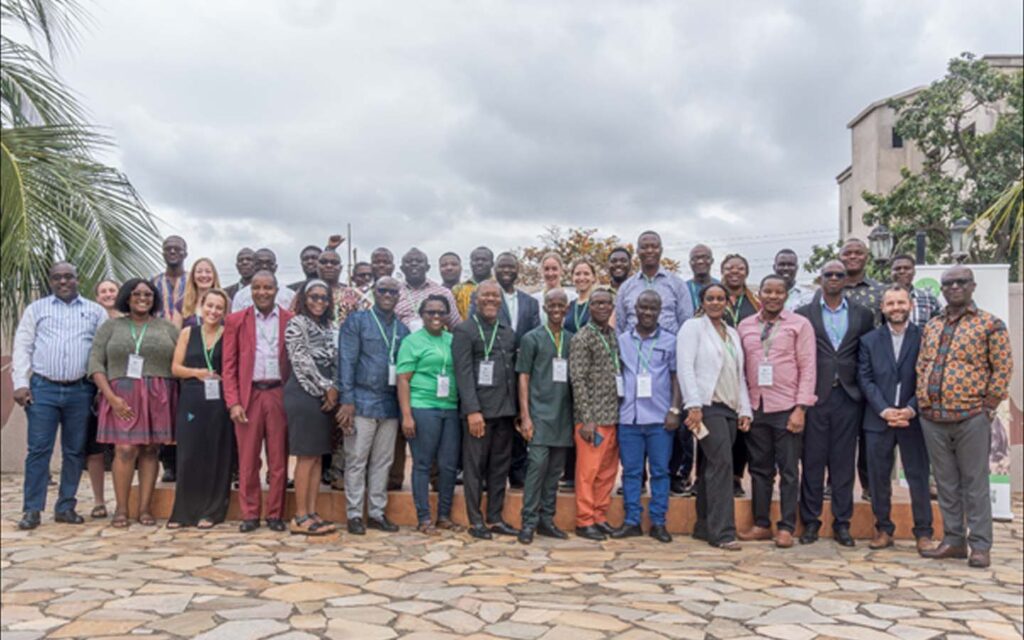The Society for the Conservation of Nature of Liberia (SCNL) and the University of Liberia (UL) recently participated in a three-day workshop for the West Africa Nature Transformation Initiative (WANTi). Organized by the Cambridge Conservation Initiative (CCI), the event took place from October 1 to 3, 2024, at the Mensvic Grand Hotel in Accra, Ghana. This gathering brought together representatives from universities and conservation organizations throughout the region to discuss and strategize on key conservation issues. Michael E. Taire, Program Manager of SCNL, and Dr. Benedictus Freeman from the University of Liberia represented their respective institutions.
The workshop aimed to enhance existing expertise in conservation research, policy, and community engagement within the Guinea Forests of West Africa (GFWA). Participants sought to develop a theory of change to facilitate long-term collaborations among West African universities, NGOs, policymakers, and the Cambridge Conservation Initiative. A significant focus was placed on integrating the perspectives of local and traditional communities into these partnerships, along with identifying funding strategies.
Nearly forty (40) participants from various GFWA countries, universities, WABiLED, and international organizations attended the workshop. The Ghana Wildlife Service (GWS) hosted the event, which was organized in collaboration with the University of Cambridge, RSPB, BirdLife International, IUCN, and Fauna & Flora. Notable speakers included Prof. Erasmus Owusu, Executive Director of GWS, who delivered the welcome remarks, and Mr. Nyadia Sulemana Nelson of GWS, who provided the opening statement. Dr. Nouhou Ndam represented WABiLED among other distinguished attendees.
Key outcomes of this regional gathering included the formulation of a comprehensive theory of change (ToC) and a strategic action plan for GFWA. This plan emphasizes the importance of collaborative research among universities, NGOs, and the private sector. Additionally, GFWA aims to serve as a regional voice for data-driven advocacy on international platforms.
Participants underscored the necessity of establishing a governance structure, involving non-technical experts, creating a GFWA database, and pursuing regional funding opportunities. As a follow-up to the workshop, plans are in place to publish policy briefs and academic papers to further support conservation efforts.

